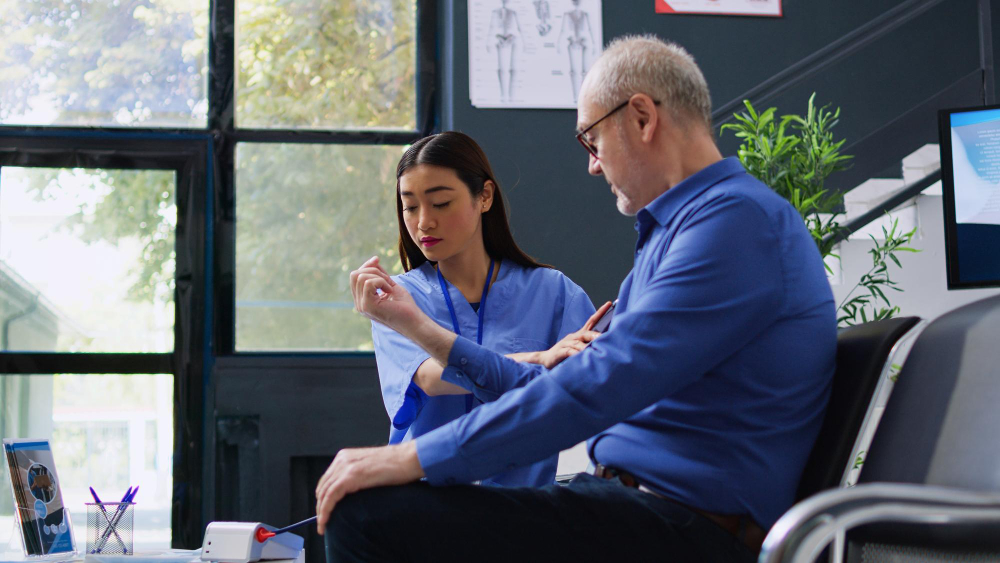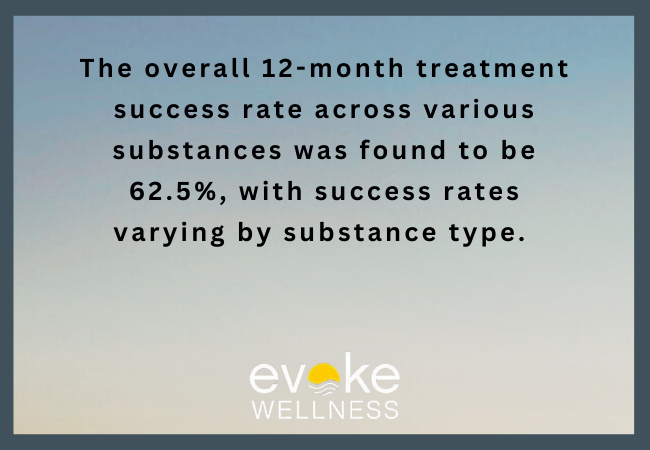Completing an inpatient rehab program is a major milestone in the recovery journey, but the work doesn’t stop there. The transition from a structured treatment environment back into everyday life can be challenging. Without a well-structured aftercare plan, individuals may face increased risks of relapse, stress, and difficulty maintaining sobriety.
At Evoke Wellness Ohio, we understand that long-term recovery requires ongoing support, guidance, and access to resources. Our intensive inpatient treatment program in Ohio helps individuals build a strong foundation during rehab, while our personalized aftercare plans ensure continued progress in sobriety. In this article, we explore what happens after inpatient rehab and how a comprehensive aftercare plan can set the stage for lasting recovery.
Importance of an Aftercare Plan
While inpatient rehab provides a safe, structured environment for detox and therapy, true recovery is a lifelong process. The transition from rehab to daily life presents challenges, including triggers, stressors, and the need for new coping strategies.
A well-structured aftercare plan helps individuals:
- Maintain sobriety and prevent relapse
- Continue therapy and emotional support
- Develop healthy coping mechanisms
- Rebuild relationships and establish a strong support system
- Find purpose through employment, education, or community involvement
Without aftercare, individuals may struggle to stay on track, increasing the risk of returning to substance use. That’s why addiction treatment programs emphasize aftercare planning as a vital step in recovery.
Key Components of a Strong Aftercare Plan
1. Outpatient Treatment and Therapy
Transitioning from an intensive inpatient treatment program in Ohio to outpatient care ensures that individuals receive continued therapy and professional support. Outpatient treatment options may include:
- Partial Hospitalization Programs (PHPs): A structured program with daily therapy sessions, allowing individuals to practice independence while still receiving intensive care.
- Intensive Outpatient Programs (IOPs): A step down from PHP, providing therapy a few days a week while allowing more flexibility for work and personal responsibilities.
- Standard Outpatient Therapy: Weekly or biweekly therapy sessions with a counselor, focusing on long-term recovery strategies.
Therapy remains an essential part of recovery, helping individuals manage triggers, improve mental health, and strengthen relapse prevention skills.
2. Sober Living Homes
For individuals who need a stable, supportive environment after rehab, sober living homes offer a transitional step before returning to independent living. These homes provide:
- A drug- and alcohol-free environment
- Peer support from others in recovery
- House rules and accountability measures to encourage responsibility
- Continued therapy and recovery meetings
Sober living is a great option for those who may not have a supportive home environment or who need additional structure before fully transitioning to independent life.
3. Support Groups and 12-Step Programs
Peer support plays a crucial role in maintaining long-term sobriety. Many individuals find strength in attending support group meetings such as:
- Alcoholics Anonymous (AA) or Narcotics Anonymous (NA) – Traditional 12-step programs providing peer support, mentorship, and accountability.
- SMART Recovery – A non-12-step alternative focusing on self-empowerment and science-based recovery techniques.
- Refuge Recovery – A mindfulness-based recovery group rooted in Buddhist principles.
Regular participation in support groups helps individuals build a sober network, gain encouragement, and stay motivated in their recovery.
4. Mental Health and Dual Diagnosis Care
For those with co-occurring mental health conditions, continuing mental health treatment is essential. After inpatient rehab, individuals should maintain:
- Regular therapy sessions with a licensed counselor
- Medication management for anxiety, depression, or other mental health conditions
- Holistic therapies such as mindfulness, yoga, or meditation for stress management
Since mental health plays a significant role in addiction recovery, ongoing psychiatric care helps individuals maintain emotional stability and avoid relapse triggers.
5. Relapse Prevention Strategies
One of the most critical aspects of aftercare planning is learning how to prevent relapse. Common relapse prevention strategies include:
- Identifying and managing triggers – Recognizing stressors, negative emotions, and high-risk situations that could lead to substance use.
- Developing coping skills – Using therapy techniques, mindfulness, exercise, and healthy hobbies to manage cravings and stress.
- Creating a crisis plan – Having a structured plan in place if cravings become overwhelming, including emergency contacts and immediate steps to take.
A solid relapse prevention plan helps individuals stay on track and navigate challenges in daily life.
6. Life Skills and Career Support
Long-term recovery includes rebuilding a meaningful, fulfilling life. Many addiction treatment programs in Ohio offer assistance with:
- Resume building and job placement services
- Educational programs or vocational training
- Financial planning and budgeting skills
- Healthy relationship-building and communication strategies
Developing these skills helps individuals regain independence and confidence.
7. Career and Educational Support
Returning to work or school can be overwhelming after rehab. Many addiction treatment programs in Ohio offer:
- Job placement services to help individuals re-enter the workforce.
- Resume building and interview coaching for career advancement.
- Educational programs and vocational training to support long-term success.
Having a stable job or educational focus provides purpose and reduces the likelihood of relapse.
8. Family and Relationship Counseling
Rebuilding relationships damaged by addiction takes time and effort. Family therapy helps:
- Repair trust and improve communication.
- Set healthy boundaries for both the individual and loved ones.
- Educate family members about addiction and recovery.
Strong relationships play a crucial role in ongoing sobriety and emotional support.
Why Choose Evoke Wellness Ohio for Aftercare Planning?
At Evoke Wellness Ohio, we recognize that recovery doesn’t end after inpatient rehab—it’s a lifelong journey. Our intensive inpatient treatment program in Ohio provides personalized aftercare plans to ensure individuals receive the support and resources needed for long-term sobriety.
What sets us apart?
- Individualized aftercare planning – We create customized plans tailored to each person’s needs, including outpatient care, therapy, and relapse prevention strategies.
- Comprehensive addiction treatment programs in Ohio – From medical detox to residential treatment and outpatient care, we offer full-spectrum recovery services.
- Dual diagnosis support – We specialize in treating co-occurring mental health conditions, ensuring individuals receive the psychiatric care necessary for lasting recovery.
- Strong recovery community – We connect individuals with peer support groups, sober living options, and continued therapy for long-term success.
Our team of experienced medical professionals, addiction specialists, and therapists is dedicated to guiding each individual through their recovery journey with care and compassion.
Start Your Aftercare Journey Today
If you or a loved one is completing inpatient rehab, now is the time to plan for long-term success. A strong aftercare plan provides the tools, support, and guidance needed to maintain sobriety and rebuild a fulfilling life.
At Evoke Wellness Ohio, we offer comprehensive addiction treatment programs in Ohio that include individualized aftercare planning to help you stay on track. Take the next step in your recovery. Contact Evoke Wellness Ohio today at 866-430-9267 to learn more about our aftercare programs and ongoing support services.
Frequently Asked Questions (FAQs)
Why is aftercare important after inpatient rehab?
Aftercare provides ongoing support, helping individuals transition from a structured rehab environment to daily life. Without a plan, the risk of relapse increases. Aftercare includes therapy, support groups, and relapse prevention strategies to maintain long-term sobriety.
What are the main components of an effective aftercare plan?
A strong aftercare plan includes:
- Continued outpatient therapy (PHP, IOP, or standard outpatient care)
- Participation in support groups like AA, NA, or SMART Recovery
- Sober living housing for a stable transition
- Mental health treatment for co-occurring disorders
- Relapse prevention strategies to manage triggers
- Life skills training for daily responsibilities
- Career or educational support for long-term success
- Family counseling to rebuild relationships
How long does aftercare last?
The length of aftercare depends on individual needs. Some may participate in outpatient treatment for a few months, while others engage in therapy and support groups for years. Recovery is a lifelong process, and ongoing support increases long-term success.
Can I work or go to school while in aftercare?
Yes. Many addiction treatment programs in Ohio offer flexible outpatient care that allows individuals to work, attend school, or fulfill personal responsibilities while continuing treatment. Programs like Intensive Outpatient Programs (IOP) provide structured support while allowing independence.
What is a sober living home, and how does it help?
Sober living homes provide a structured, drug-free environment for individuals transitioning from inpatient rehab. These homes promote accountability, offer peer support, and reinforce sober routines, making it easier to adjust to everyday life.
How does aftercare help with relapse prevention?
Aftercare equips individuals with coping strategies, therapy, and peer support to handle triggers and stress. Having a structured plan, attending therapy, and engaging in support groups reduces the risk of relapse.



